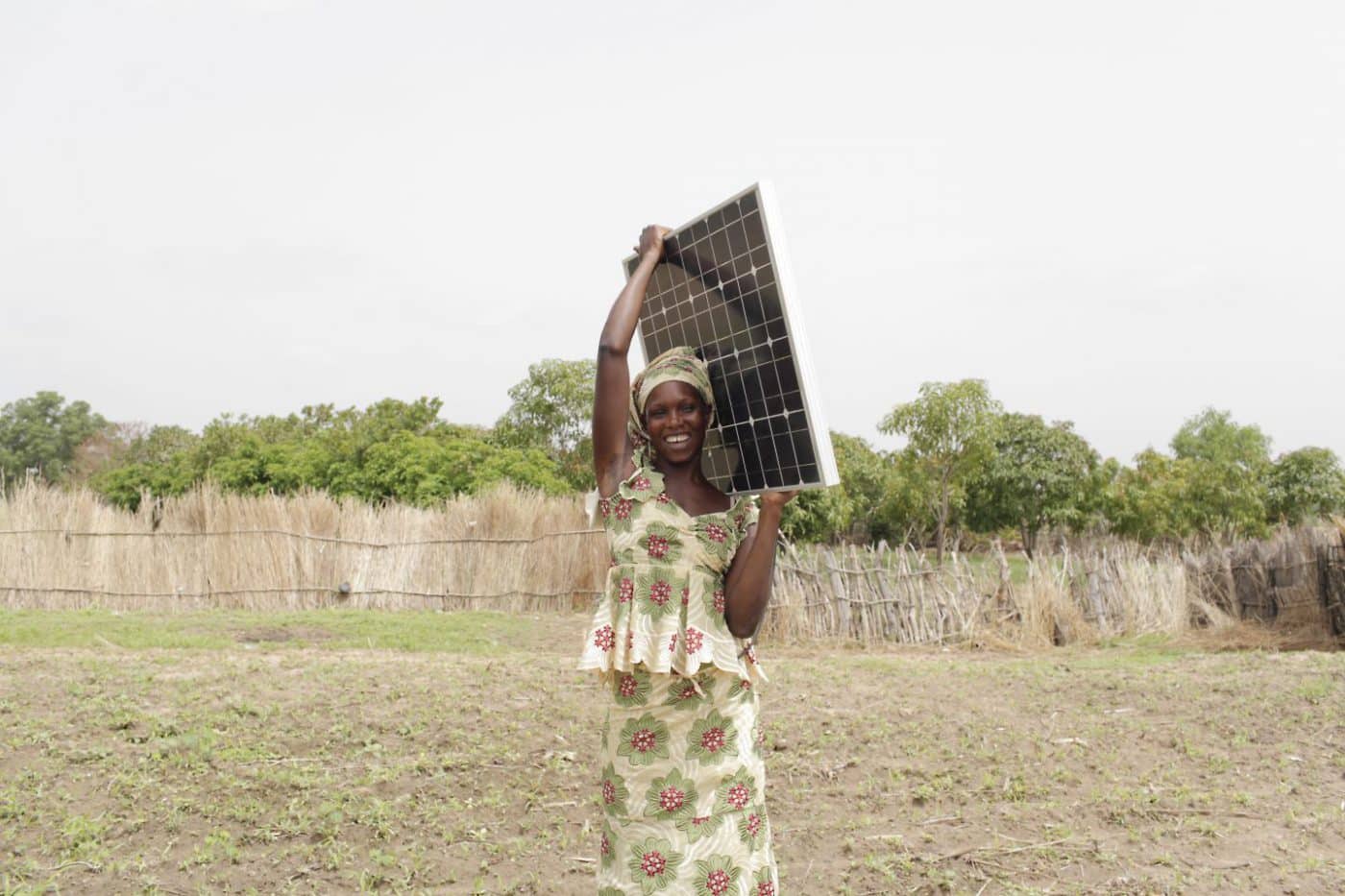The 24th edition of the Climate conference, known as COP24 is about to start. From 2 to 14 December, World leaders, international institutions, private sector, climate groups and other civil society organizations will gather in Katowice, Poland, to discuss global ambitions to protect the climate and define adaptation and mitigation measures to protect the most vulnerable countries. As in previous years, Hivos will visit the COP to call for inclusive climate action that puts people at the center. Our focus: increasing investments in decentralized renewable energy as a climate and development solution.
Global solutions
This year, countries aim to take decisions about the guidelines for effective implementation of the Paris Agreement, the so-called Paris Rulebook. Moreover, the National Determined Contributions (NDC) of countries will be reviewed and progress ought to be made with regards to climate finance. Especially for climate vulnerable countries this COP is decisive. Its conclusions will to a large extend determine the feasibility of the implementation of their NDCs because it holds decisions on who finances what. Are countries stepping up to help finance the appropriate adaptation and mitigation actions? The Polish Presidency states it clearly, ‘the ambition […] is to adopt rules and tools that will create a systemic solution for the whole world’.
Investing in energy
We fully endorse the aspiration of the Polish Presidency, but also recognize a lot still needs to be done. If we look at the international (climate) finance allocated to energy, we see that currently, the bulk is invested in middle- and high income countries. Hence, not benefitting the entire world, let alone the most vulnerable (see also our article ‘New energy access reports again show gloomy future’).
Investments also do not find its way to the most benefitting solutions. Just small amounts are allocated for decentralized renewable energy solutions even though it is known as a key solution to achieve both climate and development goals (SDG7: universal energy access).
Therefore, we advocate for climate action to target vulnerable countries and finance to be invested in universal access through decentralized renewable energy.
Hivos at COP24
To this end, Hivos is organising and participating in a number of side events in Katowice. Together with our partner organisations from Malawi, and Zimbabwe, we will actively seek entry points to influence the climate finance debate and highlight the need for decentralized renewable energy investments and inclusion of women to achieve green and inclusive energy for all. Our partners’ expertise and evidence is vital to influence the various discussions at COP24.
This year we also invited journalists to attend the event. We believe they are vital in increasing awareness about climate challenges and solutions both locally and internationally (see here one of the articles written by Hivos’ trained journalist Watmore Makokoba for The Beam Magazine).
Overview of Hivos’ side events
Strong voices from the South: how media can enhance sustainable development while combating climate change
December 7, 10.30 – 11.30, UNDESA pavilion
This session invites journalists from Malawi, Zimbabwe and Nepal that report on issues like clean cooking, deforestation, the extraction of fossil fuels and the uptake of decentralized renewable energy. They will share their experiences with writing about the topic and the way they have contributed to the debates on climate action.
Among the speakers are award winning journalist James Chavula (Malawi); Watmore Makokoba (Zimbabwe); Sylvie Bassono, Programme Nationale de Digesteur (Burkina Faso); and Sushma KC Shresta, news anchor and program producer (Nepal).
Download the official invitation here.
Innovative climate finance to escalate private sector investment in decentralized energy access
December 10, 12.00 – 13.30, EU pavilion
The session will focus on how to address the barriers, such as the lack of adequate finance, that hamper the uptake of off-grid and mini-grid renewable energy solutions. New research by IIED on public climate finance and aggregation of finance will be discussed as well as experience of Lithuania on climate finance for renewable energy.
Speakers include Lina Ceicyte, Ministry of Environment of the Republic of Lithuania; Felice Zaccheo, Head Sustainable Energy and Climate Change at DG International Cooperation & Development, European Commission; and Marcus Wiemann, Executive Director Alliance for Rural Electrification.
Download the official invitation here.
Inclusive policy and finance for sustainable energy access
December 11, 16.30 – 18.00, AfDB pavilion
Panelists and discussants will discuss different approaches to channeling financing to where it is needed and in the form that is needed (e.g., financial instrument, terms of financing), as well as policy and institutional changes to scale-up finance and reach local (women) entrepreneurs. In order to scale-up deployment as well as to maximize the socio-economic benefits of off-grid renewable energy solutions.
Among the speakers are Minister Kaag – Foreign Trade and Development Cooperation, The Netherlands; Amadou Hott –Vice President for Power, Energy Climate and Green Growth, AfDB; Tareq Emtairah- Director of the Energy Department, UNIDO; Keriako Tobiko – Cabinet Secretary Ministry of Environment and Forestry, Government of the Republic of Kenya (tbc); Ingrid-Gabriela Hoven – Ministry for Economic Cooperation and Development, Government of the Federal Republic of Germany; Tosi Mpanu Mpanu– Vice-chair LDC REEEI , board member GCF, Democratic Republic of Congo.
An official invitation will be uploaded soon.
Meet-the-Expert
December 12, 14.00 – 16.00, EU pavilion
Meet our colleague Rita Poppe (@ritapoppe) to learn about Hivos’ work on decentralized renewable energy for energy access.
For more information about our activities and work, please contact our communications officer Merit Hindriks, mhindriks@hivos.org and follow us on twitter: @HivosEnergy.
This article was originally published on Hivos website and can be accessed here.











Follow us on: